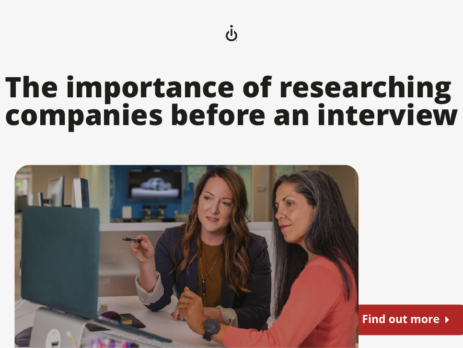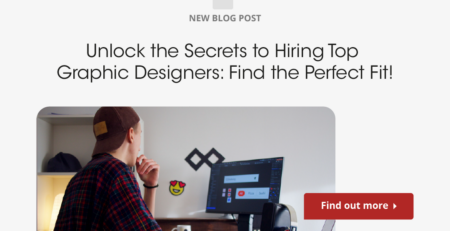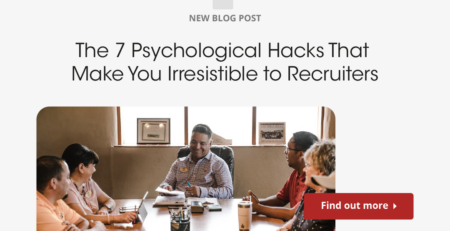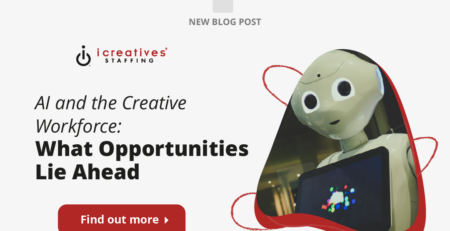The Importance of Researching Companies Before an Interview
In today’s competitive job market, landing an interview is a significant achievement. However, the real challenge begins long before you sit across from a potential employer. One of the most critical steps any candidate can take is to thoroughly research the company where they hope to work. This preparation not only demonstrates professionalism and genuine interest but also equips you with the knowledge needed to make informed decisions and stand out from other applicants.
Researching a company before an interview allows you to tailor your answers to align with the organization’s culture, values, and goals. It gives you the confidence to speak intelligently about the company’s products, services, and recent developments, which can leave a lasting impression on your interviewers. Moreover, understanding the company’s mission and work environment helps you assess whether it’s the right fit for your career aspirations.
Beyond impressing your interviewers, company research empowers you to ask insightful questions that demonstrate your engagement and critical thinking. It also helps you avoid common pitfalls, such as asking about information that is readily available online or making assumptions about the company’s operations. In essence, being well-prepared shows that you respect the interviewer’s time and are serious about contributing to the organization’s success.
The process of researching a company can seem daunting, especially with the abundance of information available online. However, by focusing on key areas—such as the company’s history, leadership, products, culture, and recent news—you can efficiently gather the insights that matter most. Leveraging resources like the company website, news articles, social media, and employee reviews can provide a well-rounded perspective.
In this article, we’ll explore why researching companies before an interview is so important, how to do it effectively, the benefits it brings, the common mistakes to avoid, and actionable strategies to help you prepare. Whether you’re a seasoned professional or a first-time job seeker, these insights will help you approach your next interview with confidence and clarity.
Most Asked Questions About Researching Companies Before an Interview
- Why is it important to research a company before an interview?
- How should you research a company before an interview?
- What are the key benefits of researching a company before an interview?
- What common mistakes do candidates make when researching companies?
- What actionable tips can help you research a company more effectively?
Why is it important to research a company before an interview?
Researching a company before an interview is crucial for several reasons that directly affect your chances of success. First and foremost, it shows your genuine interest in the position and the organization. Employers are more likely to favor candidates who have taken the time to understand their business and its values. This effort demonstrates initiative, enthusiasm, and a proactive attitude—traits highly valued in any workplace.
Knowledge about the company allows you to tailor your responses to interview questions. For example, if you know the company values innovation, you can highlight your creative problem-solving skills. If they emphasize teamwork, you can share examples of successful collaborations from your past experiences. This alignment between your answers and the company’s priorities can set you apart from other candidates.
Understanding the company’s mission, products, and recent achievements also helps you ask insightful questions during the interview. These questions not only show your engagement but can also help you determine if the company is the right fit for your career goals and values. For instance, you might ask about the company’s future direction or how your potential role contributes to larger organizational objectives.
Company research can help you avoid awkward situations, such as asking about basic information that’s readily available on the company’s website. It also prevents you from making incorrect assumptions about the organization, which could harm your credibility.
Moreover, by understanding the company’s challenges and opportunities, you can position yourself as a solution-oriented candidate. For example, if the company is expanding into new markets, you could discuss your experience with international projects or adapting to new business environments.
Researching the company’s culture and work environment is equally important. This knowledge helps you assess whether the organization aligns with your personal values and work style. It also prepares you to discuss how you would fit into the team and contribute to a positive workplace dynamic.
Being well-prepared can boost your confidence and reduce interview anxiety. When you’re familiar with the company’s background and current initiatives, you’re less likely to be caught off guard by unexpected questions.
In some industries, demonstrating deep knowledge of the company is not just preferred—it’s expected. For example, in creative fields, understanding a brand’s identity and previous campaigns is essential for making a strong impression. Learn more about standing out in creative interviews in our guide: Top Secrets to Kickstart Your Professional Profile and Land Dream Projects in Graphic Design.
Ultimately, researching a company before an interview is about respect—respect for the employer’s time, for the opportunity, and for your own career aspirations.
It’s a foundational step that can make or break your chances of landing the job.

How should you research a company before an interview?
Effective company research involves gathering information from multiple sources to gain a comprehensive understanding of the organization. The first and most obvious place to start is the company’s official website. Here, you’ll find details about their mission, values, leadership team, products, services, and recent news or press releases.
Next, explore the company’s social media channels. Platforms like LinkedIn, Twitter, and Facebook can provide insights into the company’s culture, community involvement, and current initiatives. Pay attention to the tone of their posts and the types of content they share—this can reveal a lot about what matters to the organization.
Employee review sites such as Glassdoor and Indeed offer a behind-the-scenes look at what it’s like to work at the company. While reviews should be taken with a grain of salt, consistent themes—positive or negative—can be telling.
News articles and industry publications are valuable for understanding the company’s reputation, recent achievements, and challenges. A quick search for the company’s name in Google News can uncover recent developments that may not be highlighted on their website.
Don’t overlook the importance of networking. Reach out to current or former employees on LinkedIn for informational interviews. These conversations can provide candid insights that you won’t find anywhere else and help you prepare for potential interview questions.
Study the company’s competitors and market position. Understanding where the company fits within its industry can help you speak knowledgeably about its strengths and areas for growth.
Review the company’s financial reports if they are publicly available. This information can give you a sense of the organization’s stability and future prospects.
Organize your findings in a document or notebook, focusing on key areas: mission and values, leadership, products/services, recent news, culture, and market position. This will make it easier to reference your research during the interview.
The more thorough your research, the better prepared you’ll be to engage in meaningful, relevant conversations during your interview.
What are the key benefits of researching a company before an interview?
Researching a company before an interview offers a range of benefits that can significantly improve your chances of success. First, it enables you to tailor your responses to the company’s specific needs and culture, making you a more attractive candidate.
It also allows you to ask intelligent, informed questions that demonstrate your engagement and critical thinking. Employers appreciate candidates who show a genuine interest in the organization and its future.
By understanding the company’s values and mission, you can better assess whether the organization is a good fit for your own goals and work style. This alignment can lead to greater job satisfaction and long-term career growth.
Company research can help you anticipate and prepare for common interview questions, such as “What do you know about our company?” or “Why do you want to work here?” Well-crafted answers to these questions can set you apart from competitors.
Being well-informed can also boost your confidence, helping you stay calm and focused during the interview. When you know what to expect, you’re less likely to be caught off guard by unexpected questions or topics.
Additionally, research can reveal red flags that may influence your decision to pursue the opportunity. For example, you might discover high turnover rates, negative press, or a misalignment with your values.
What common mistakes do candidates make when researching companies?
Even well-intentioned candidates can make mistakes when researching companies. One of the most common errors is relying solely on the company’s website for information. While the official site is a great starting point, it often presents a polished, idealized version of the organization.
Another mistake is failing to dig deep enough. Surface-level research may leave you unprepared to answer specific questions or engage in meaningful conversations during the interview.
Some candidates overlook recent news or press releases, missing out on important developments that could impact the company’s direction or your potential role.
Ignoring employee reviews is another pitfall. While not every review is reliable, patterns and recurring themes can offer valuable insights into the company’s culture and work environment.
Candidates sometimes forget to research the company’s competitors and industry trends. This broader context can help you understand the organization’s challenges and opportunities, and position yourself as a knowledgeable candidate.
Failing to prepare questions based on your research is a missed opportunity. Thoughtful questions show that you’ve done your homework and are genuinely interested in the company’s future.
Lastly, some candidates make the mistake of not organizing their research. Scattered notes or vague recollections can make it difficult to reference key information during the interview.
To avoid these mistakes, approach your research methodically and use multiple sources to build a well-rounded understanding of the company.
Remember, the goal is not just to impress your interviewers, but to make an informed decision about your future workplace.
Avoiding these common pitfalls will help you stand out as a prepared, thoughtful, and engaged candidate.
What actionable tips can help you research a company more effectively?
To research a company effectively, start by creating a checklist of key areas to explore: mission and values, leadership, products/services, recent news, company culture, and market position. Use a combination of sources, including the company website, social media, news articles, and employee reviews.
Set aside dedicated time for research and organize your findings in a document or spreadsheet. This makes it easy to reference key information during your interview and ensures you don’t overlook important details.
Reach out to current or former employees for informational interviews. These conversations can provide unique insights and help you prepare for specific interview questions.
Use LinkedIn to research the backgrounds of your interviewers. Understanding their roles and career paths can help you build rapport and tailor your questions.
Prepare a list of thoughtful questions based on your research. For example, you might ask about the company’s future plans, recent challenges, or how your role fits into larger organizational goals.
Stay up to date on industry trends and competitor news. This broader perspective can help you speak knowledgeably about the company’s position in the market.
Practice summarizing your research out loud. This will help you articulate your knowledge confidently during the interview.
Be prepared to discuss how your skills and experiences align with the company’s needs and values. Use specific examples from your research to support your answers.
Remember to update your research if your interview is rescheduled or delayed. Company news and priorities can change quickly.
By following these actionable tips, you’ll be well-prepared to make a strong impression and make informed decisions about your career.
Conclusion
Researching companies before an interview is a vital step that can dramatically influence your job search outcomes. It demonstrates professionalism, enhances your confidence, and ensures you are making informed decisions about your career. By leveraging multiple sources and focusing on key areas, you can tailor your interview responses, ask insightful questions, and assess whether a company is truly the right fit for you.
Effective research not only helps you impress potential employers but also empowers you to take control of your career journey. Avoiding common mistakes and following actionable strategies will set you apart as a prepared and thoughtful candidate.
In a world where information is readily available, those who take the time to dig deeper and understand the nuances of a company will always have the competitive edge. Whether you’re seeking your first job or aiming for a leadership position, investing in thorough company research is a habit that will serve you well throughout your career.
Remember, every interview is a two-way street. Use your research not only to impress your interviewers but also to evaluate if the company aligns with your values, goals, and aspirations. Your future self will thank you for making informed, intentional choices.
As you prepare for your next interview, keep these principles in mind and approach each opportunity with curiosity, diligence, and confidence. The effort you invest in research today will pay dividends in the form of career satisfaction and long-term success.
Good luck on your journey—may your preparation open doors to exciting new possibilities!
In today’s competitive market, finding the right creative and marketing expert can be a challenge. But with icreatives, you’re in experienced hands. With 37 years in staffing and a track record of matching more than 10,000 employees to over 1,000 companies worldwide, we know how to connect you with the best. Plus, you only pay if you hire-there’s no risk, only results. Ready to find your perfect creative or marketing expert? HIRE WITH ICREATIVES today!












